Squid Game series review: Netflix South Korean survival show depicts the horrors of capitalism
Squid Game presents a sharp commentary on the twisted nature of humanity with a tight narrative, characters that evoke empathy, and an uncensored display of gore.
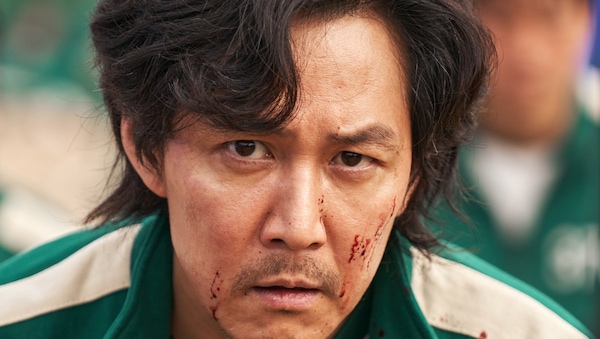
A still from Squid Game | Netflix
Last Updated: 01.38 PM, Sep 23, 2021
Synopsis: We all recall watching the Japanese variety show Takeshi’s Castle as children, laughing to Javed Jaaferi’s goofy voiceover as contestants struggled to complete the most ridiculous challenges. We have quivered and squirmed, whilst participants on Khatron Ke Khiladi go through some bizarre, even humiliating hurdles. Netflix’s new South Korean original, Squid Game, follows the template of a survival game. But it can be sinister beyond the realm of imagination.
Story: The show opens to protagonist Seong Gi-hun (Lee Jung-jae), a middle-aged man with the worst luck. He’s unemployed, relies on his mother for a daily allowance that he gambles away, and his marriage ended long ago. And on his tail are debt collectors, who will go to any length to retrieve their money. So when a mysterious man tempts him to play a game of ddakji for 10,000 won (about Rs 6,200), he doesn’t even think twice. The man later hands him a business card, inviting him to play another game with higher stakes.
Gi-hun makes the call, and is soon picked up in an inconspicuous van by a driver in a hazmat suit. He's sedated in the car and wakes up in an unknown location, in a numbered tracksuit with 455 people. Every player in the room seems to have faced a heavy financial constraint, including his successful friend Cho Sang-woo (Park Hae-soo). The players sign agreements confirming that their participation was by consent, and that if they win, they would take home a fat cash prize.
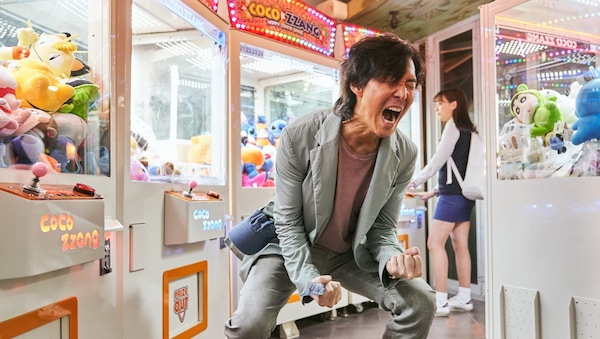
Review: It all seems harmless at first. The rules are simple, and so is the first challenge: it’s a children’s playground game, plain and simple. What could go wrong? The suited guards, the anonymity of the location, and reducing their identities to numbers is eerie, but is it a cause for alarm? Squid Game builds up the tension to a point that it’s almost tangible. What will come next? Now that’s something difficult to contemplate from the get-go. Writer-director Hwang Dong-hyuk, throws the viewers off balance, as he shifts the narrative from an innocuous space to a dark one.
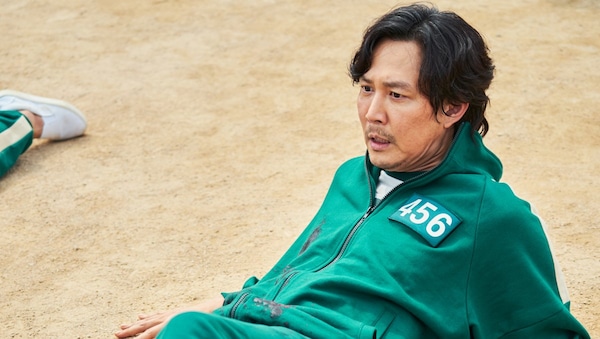
The deadly games that the players have to survive — the innocence associated with them contrasted by the bloodbath that follows — are not the sole highlight of Squid Game. The story is critical of the notions of free will and equality, and reminds the viewer that everyone is a slave to capitalism, and has no way out. Hwang Dong-hyuk’s grounds the plot in the present-day reality and not a far-off dystopian one, makes this critique all the more believable.
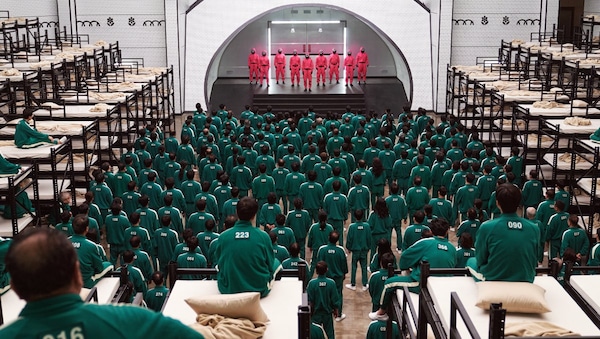
There are characters that dominate the story, people that Gi-hun encounters during his time in the arena. There’s a Pakistani migrant worker Ali (Tripati Anupam), a North Korean defector Sae-byeok (Jung Ho-yeon), a gangster Jang Deok-su (Heo Sung-tae), and a single mother Han Mi-nyeo (Kim Joo-ryoung). They are commoners, men and women trying to make ends meet, who grabbed a second chance they would never get in the real world. It’s not greed, but a desperate need to look out for their loved ones that drives them to join the game.
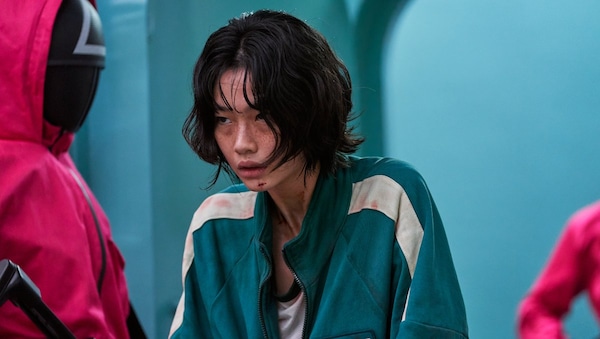
The organisers remind them that the arena is an egalitarian one, where no one player has an advantage over the other. The players are also convinced that they are here of their own volition. Nothing could be further from the truth. Every move is on display to a group of powerful elites, who are tickled by the idea of poor people going to extreme lengths for money. Even the so-called soldiers managing these games are confined within a rigid hierarchy, though their motivation to be on the other side of the games is never explored. Still, the world that Squid Game is revealing of the society we live in — the endless cycle of exploitation, and how insignificant the value of human life is.
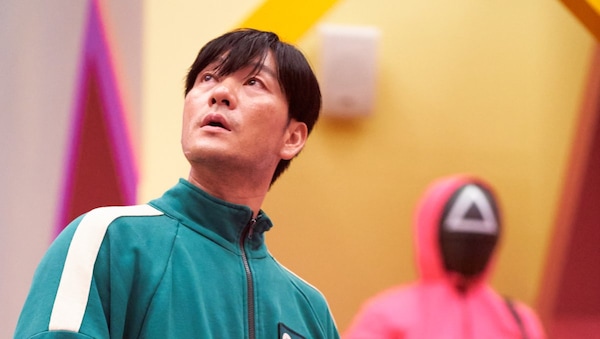
Squid Game doesn’t entirely paint a hopeless picture: not everything is black and white. The show doesn’t view the players with a judgemental lens, but the ones who are using their power for perverse pleasure. The camaraderie between players and how they manage to hold on to the last shred of their humanity in a situation so bleak gives some optimism.
South Korean shows have a way of capturing the realities of society — whether it’s struggles of being a woman in Asian societies (Something in the Rain) or a single parent (One Spring Night), toxicity in the army (DP), or how friendships can endure any obstacle (Dear My Friends). Squid Game presents a sharp observation of our world with compelling characters that evoke empathy, a tight narrative with one too many nail-biting moments, and an uncensored display of gore. Though Squid Game has a total run-time of nine hours, time seems to fly by as you become deeply invested in the players’ fate.
Verdict: Squid Game is an engrossing watch that tries to elucidate the horrors of our capitalistic society. Hwang Dong-hyuk’s seamless storytelling along with subversion of survival game tropes makes for an ideal watch.
WHERE
TO WATCH
Subscribe to our newsletter for top content, delivered fast.
